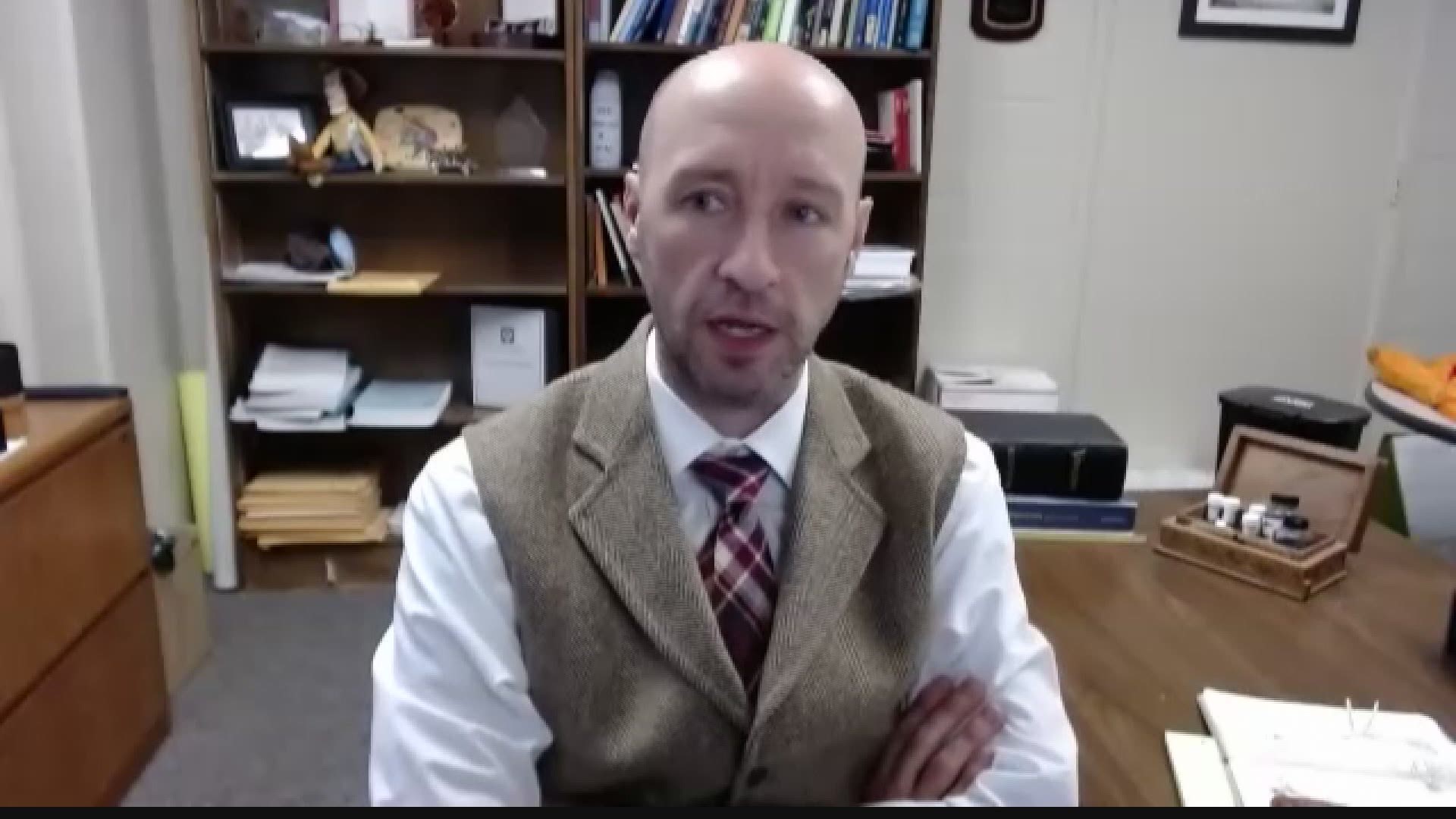INDIANAPOLIS — Thousands of critical care workers will get a coronavirus vaccination over the next five days.
IU Health's Dr. Gabriel Bosslet has never been more ready to roll up his sleeve and take a needle in the arm.
“The injection I get tomorrow is a miracle," he said. "It will be a miracle that’s injected into my arm.”
The “miracle” he speaks of is a vaccine against the coronavirus, one Bosslet believes is the first step toward ending a global pandemic and the suffering that’s come with it.
“[The end of the pandemic is] not going to come fast enough, but this, to me, tells me that it’s coming,” said Bosslet.
The 43-year-old will join 1,900 other critical-care health workers over the next five days to get the vaccine. An invitation went out the weekend after state officials worked with IU Health to choose who should receive the vaccine first.
“They’re our health care heroes, the ones who have been on the front lines of this, and it’s going to be a great day when we open the doors tomorrow,” said Kristen Kelley, nursing director at IU Health's Infectious Disease Prevention department. She will help run the vaccine clinics.
“It couldn’t come at a better time," she said. "I think the troops really needed this. They have not gotten a break from COVID since this started. It’s a great moment. We’re ready."
Kelley calls this “our hardest hour,” with hospitals seeing a record volume of COVID-19 cases.
“The increase in deaths is really hard to see, and it’s taking a toll on our health care workers that are having to zip up these body bags over and over and over," said Kelley. "The pain is indescribable."
It’s pain Dr. Bosslet knows all too well.
“It’s just a horrific time to be in the hospital," Bosslet said. "It’s just everywhere."
That’s why he’s not worried about side effects that might come after he gets the vaccine.
“If you get the side effects, you should be happy because it means it’s working,” he said.
Bosslet, fighting COVID-19 every day for nine months, compares getting the vaccine to both of his grandfathers enlisting to fight in World War II.
“Their sacrifice is far greater than rolling up our sleeves and taking a needle in the arm, but this is our opportunity to sacrifice for the greater good of all of us,” said Bosslet.

